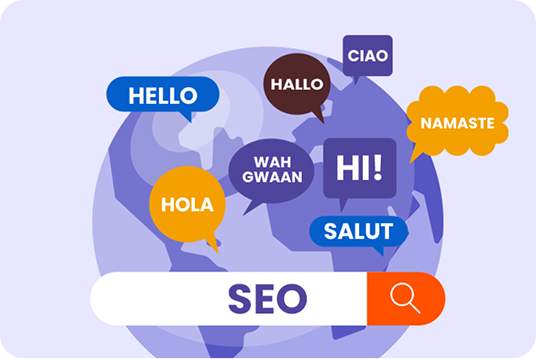What is SEO Content Writing? And How to Do It Right
.

What Is SEO Content Writing?
SEO content writing is the strategic process of creating valuable, informative, and engaging content that is specifically optimized for search engines while providing genuine value to readers. Unlike traditional article writing, SEO content writing combines the art of storytelling with the science of search engine optimization to help your content rank higher in search results.
At its core, content writing for SEO involves understanding what your target audience is searching for and creating comprehensive, well-structured content that answers their questions better than competing pages. It’s about becoming the go-to resource that search engines trust and users love to read.
For businesses and content creators, mastering SEO content writing is essential for online visibility. It’s the bridge between having great ideas and actually reaching the people who need to hear them. When done correctly, it can transform your website from a digital ghost town into a thriving hub of organic traffic.
Why SEO Content Writing Matters?
- It drives organic traffic to your website without paid advertising
- It establishes your authority and expertise in your industry
- It helps answer the question “how to get my blog on first page of google”
- It builds long-term value that compounds over time
An effective seo writer understands that search engines are constantly evolving, and so must their content strategies. Today’s SEO content writing isn’t just about keyword density—it’s about creating comprehensive, user-focused content that search engines can easily understand and rank.
Key Elements of Effective SEO Content Writing
Strategic Keyword Research and Integration
The foundation of successful seo content begins with thorough keyword research. Understanding what your audience searches for allows you to create content that directly addresses their needs.
Essential keyword integration practices:
- Use primary keywords naturally in titles and headers
- Include related terms and synonyms throughout the content
- Focus on search intent rather than just search volume
- Target long-tail keywords that match user queries
Compelling Headlines and SEO Header Tags
Your headlines are the first thing both users and search engines see. Effective seo header tags (H1, H2, H3) create a logical content hierarchy that makes your article easier to scan and understand.
Header tag best practices:
- Use H1 for your main title with primary keyword
- Structure H2 tags for main sections
- Include H3 tags for subsections and supporting points
- Make headers descriptive and keyword-rich
High-Quality, In-Depth Content
Search engines favor comprehensive content that thoroughly covers topics. Instead of surface-level article writing, focus on creating detailed resources that answer multiple related questions.
Content depth strategies:
- Cover topics from multiple angles
- Include examples, case studies, and practical tips
- Address common questions and concerns
- Provide actionable insights readers can implement
Strategic Internal and External Linking
Links help search engines understand your content’s context and authority. A skilled seo writer knows how to weave relevant links naturally throughout their content.
Linking best practices:
- Link to authoritative external sources
- Create internal links to related content on your site
- Use descriptive anchor text
- Ensure all links add value to the reader
Essential Techniques for Creating SEO-Optimized Content
Use Natural Language and Conversational Tone
Modern search engines prefer content that reads naturally and engages users. Avoid keyword stuffing and focus on creating content that flows smoothly while incorporating your target terms organically.
Writing tone guidelines:
- Write as if you’re explaining to a knowledgeable friend
- Use active voice and clear, concise sentences
- Include transitional phrases to improve readability
- Balance professional expertise with accessibility
Structure Content for Easy Scanning
Most online readers scan content before diving deep. Effective content writing accommodates this behavior with clear structure and visual breaks.
Formatting techniques:
- Use bullet points and numbered lists
- Include subheadings every 200-300 words
- Add white space to prevent text walls
- Highlight key information with bold or italic text
Optimize for Featured Snippets
Many seo content pieces that rank well also appear in featured snippets. Structure your content to answer questions directly and concisely.
Featured snippet optimization:
- Answer questions in the first few sentences
- Use “What is…” and “How to…” formats
- Include step-by-step instructions
- Create definition boxes for key terms
Implement SEO FAQ Section
Adding an seo faq section to your content serves multiple purposes: it addresses common user questions, provides additional keyword opportunities, and increases your chances of appearing in voice search results.
FAQ section benefits:
- Targets long-tail keyword variations
- Improves user experience and time on page
- Increases chances of appearing in “People Also Ask” boxes
- Provides structured data opportunities
Advanced Strategies to Boost Your Content Performance
Create Topic Clusters and Content Pillars
Instead of creating isolated pieces, develop comprehensive topic clusters that establish your authority on specific subjects. This approach helps answer “how to get my blog on the first page of google” by building topical authority.
Content clustering strategy:
- Create comprehensive pillar pages on broad topics
- Develop supporting content that links back to pillars
- Cover related subtopics thoroughly
- Build internal linking networks between related content
Optimize for User Experience Signals
Search engines increasingly consider user experience factors when ranking content. Fast-loading, mobile-friendly, and engaging content performs better in search results.
UX optimization techniques:
- Ensure fast page load speeds
- Make content mobile-responsive
- Include engaging multimedia elements
- Create clear navigation and calls-to-action
Monitor and Update Content Regularly
SEO content writing isn’t a one-time task. Successful seo writers regularly update their content to maintain relevance and rankings.
Content maintenance practices:
- Update statistics and examples regularly
- Add new sections based on emerging questions
- Refresh outdated information
- Monitor performance and adjust strategies
Leverage Data and Analytics
Use tools like Google Analytics and Search Console to understand how your content performs and what your audience actually searches for.
Analytics insights to track:
- Organic traffic growth
- Keyword ranking improvements
- User engagement metrics
- Click-through rates from search results
Final Thoughts on Mastering SEO Content Writing
SEO content writing is both an art and a science that requires continuous learning and adaptation. The most successful seo writers combine technical knowledge with genuine empathy for their readers’ needs. They understand that the best seo content doesn’t just rank well it genuinely helps people solve problems and find answers.
Remember that effective content writing is about creating value first and optimizing second. When you focus on thoroughly addressing your audience’s questions and concerns, the SEO benefits naturally follow. Whether you’re writing your first article or your thousandth, always prioritize user value over search engine manipulation.
Key takeaways for SEO content writing success:
- Research keywords thoroughly but integrate them naturally
- Structure content with clear headers and logical flow
- Create comprehensive resources that thoroughly cover topics
- Include FAQ sections to capture long-tail searches
- Focus on user experience and engagement signals
As search engines continue to evolve, the fundamentals of good content writing remain constant: create valuable, well-structured, and engaging content that genuinely helps your audience. Master these principles, and you’ll be well on your way to understanding how to get your blog on the first page of Google while building a loyal readership that values your expertise.
FAQs
What is the difference between regular writing and SEO content writing?
SEO content writing combines traditional writing skills with search engine optimization techniques. While regular writing focuses solely on engaging readers, SEO content writing optimizes for both users and search engines by incorporating keywords naturally, using proper header structure, and following SEO best practices.
How long should SEO content be for optimal rankings?
There’s no magic number, but comprehensive content typically performs better. Most top-ranking pages contain 1,000-2,000 words. However, length should serve the topic some questions need brief answers, while complex topics require detailed explanations.
What are the most important SEO header tags to use?
Use H1 for your main title, H2 for major sections, and H3 for subsections. This creates a logical hierarchy that search engines can easily understand. Include keywords in headers naturally, but prioritize readability and user experience.
How can I make my blog appear on the first page of Google?
Focus on creating high-quality, comprehensive content that thoroughly answers user questions. Optimize for relevant keywords, use proper header structure, build quality backlinks, ensure fast page speeds, and regularly update your content to maintain relevance.
Should every piece of content include an FAQ section?
FAQ sections work well for informational content, how-to guides, and topics with common questions. They’re particularly valuable for capturing long-tail keywords and voice search queries. However, not every piece needs one use when they add genuine value.
What tools do professional SEO writers use?
Common tools include Google Keyword Planner for research, SEMrush or Ahrefs for competitive analysis, Grammarly for writing quality, and Google Search Console for performance monitoring. Many writers also use content optimization tools like Clearscope or Surfer SEO.
How important is readability in SEO content writing?
Readability is crucial for both user experience and SEO. Search engines favor content that users can easily understand and engage with. Use clear language, short paragraphs, bullet points, and logical structure to improve readability scores.
Related Services
You may also read

In 2026, AI in UI UX design is no longer experimental. It is practical, integrated, and reshaping how digital products...

How to Build an SEO Content Brief That Writers (and Google) Love In today’s competitive digital landscape, every successful content...

We all know the dance. You’re standing at the checkout counter, bags packed, line forming behind you. You reach into...

Expanding your website to serve multiple countries or languages is exciting, but it also introduces one of the most common...

It starts with a gentle buzz on your wrist. A little dopamine hit. You’ve done it. You’ve closed your rings,...

If your website has low domain authority, SEO can feel frustrating fast. You do “everything right”, publish content, optimize pages,...

The Invisible Threat It’s 2:15 PM on a Tuesday. You are wading through a swamp of unread emails, operating on...

If you have ever looked at a job board or tried to hire for a creative team, you have probably...

Online shopping has never been easier—but it has also never been riskier. As e-commerce continues to grow, fake online stores...

Introduction When we talk about digital products, design is not only about colors, shapes, or images. Good design is also...


